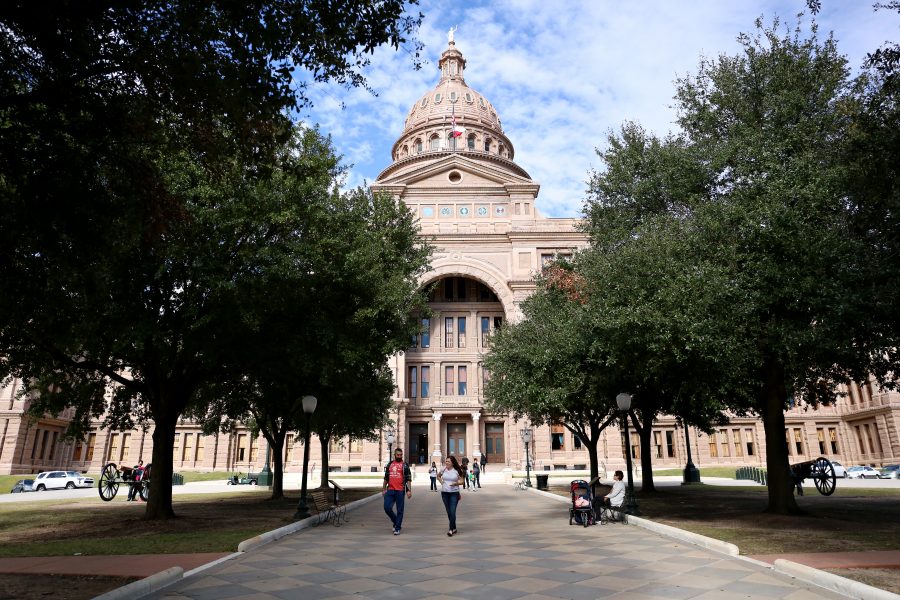The 84th Legislature of Texas convened last week and will vote on a number of education bills throughout the legislative session. The UT community is no stranger to heated dialogues regarding higher education. Last July, the UT System’s former Chancellor, Francisco Cigarroa, served President Bill Powers with the ultimatum to resign or be fired as Cigarroa prepared to launch an investigation into what anti-Powers Regent Wallace Hall and his supporters believe are crooked admissions practices at the flagship. Although the two had often butted heads, Powers was allowed to stay on through the end of this academic year and the just-launched legislative session. With all this attention on the state’s institutions of higher education, legislators will be keeping themselves busy with a number of university-related bills, such as Senate Bill 177, authored by state Sen. Kel Seliger, R-Amarillo, that aims to limit the regents’ powers. But it isn’t the only bill that can affect UT students. Here’s our take on some of the most important higher education legislation to watch in this legislative session.
Gaining college credit in high school
Two bills in the House aim to expand students’ current opportunities to gain college credit early. House Bill 462, authored by Rep. Craig Goldman, R-Fort Worth, aims to open the possibility for students to retake end-of-course assessments, or even scrap the need for an end-of-course assessment altogether at the Commissioner of Education’s discretion, in an effort to make gaining college credit easier. House Bill 505, authored by Rep. Eddie Rodriguez, D-Austin, hopes to expand upon House Bill 5, an overhaul of the secondary education system that passed in 2013. Currently, most Texas high school students are limited to taking two dual credit courses a semester, whereas students at early college high schools can take as many as their schedules allow. Of Texas’ 8,375 high schools, only 58 are early college high schools. HB 505 will enable students to earn college credit to all Texas high schools, instead of the mere 58 schools whose students currently can. These bills will give high school students the opportunity to earn college credit early, which can save money in tuition and help students that may be wavering on their path to an advanced degree, whether at a four-year institution, community college or trade school, by showing them that when the opportunity is given, they can succeed.
DREAM Act
Two other bills seek to repeal a key part of the Texas Dream Act by revoking the ability of non-legal residents of the United States to apply for in-state tuition. House Bill 209, authored by Rep. Jonathan Strickland, R-Bedford, strips the current opportunities for undocumented residents of the state to apply for in-state tuition—if they are both graduates from Texas high schools and submit a signed affidavit affirming their intention to apply for permanent residency during their time in college. House Bill 360, authored by Rep. Mark Keough, R-The Woodlands, cited within the bill as the “Texas Fair Tuition Act,” goes further by requiring those who can’t show proof of citizenship or lawful residency to face verification by the Systematic Alien Verification for Entitlements Program. The motivation behind these bills is the belief that allowing undocumented residents to receive in-state tuition is both a reward for and encouragement of undocumented immigration. However, we believe that it is an opportunity for undocumented residents and students to study in an institution of higher education while seeking citizenship, empowering them to better themselves through education and creating future members of the workforce and taxpayers alike. HB 360 and HB 209 does not make it easy for undocumented residents to become students or change the reality that undocumented residents are students at our University, working for a diploma and a better future just like everyone else.
Campus carry
Last but not least, one of the biggest stories in higher education this legislative season is campus carry, which was part of Gov. Greg Abbott’s platform in the recent election. Six proposed bills will expand gun carry and build up to the lawful carry of guns on college campuses, so Texas students should be aware of the possibility for a huge change. In formal remarks made to the Houston Chronicle, UT System spokesperson Jenny LaCoste-Caputo acknowledged worry among administrators that campus carry would jeopardize the UT System’s primary mission of ensuring students’ safety and expressed the System’s wish that bills will include a measure that would allow universities to “opt out” of campus carry, should it pass. Despite the opposition from leaders in higher education, Abbott has vowed to sign any bill expanding gun rights that hits his desk. With palpable worry regarding the safety of students from administrators, students should consider their safety on campus and, as always, exercise their voice in the future of higher education by getting in touch with their representative’s office.
















